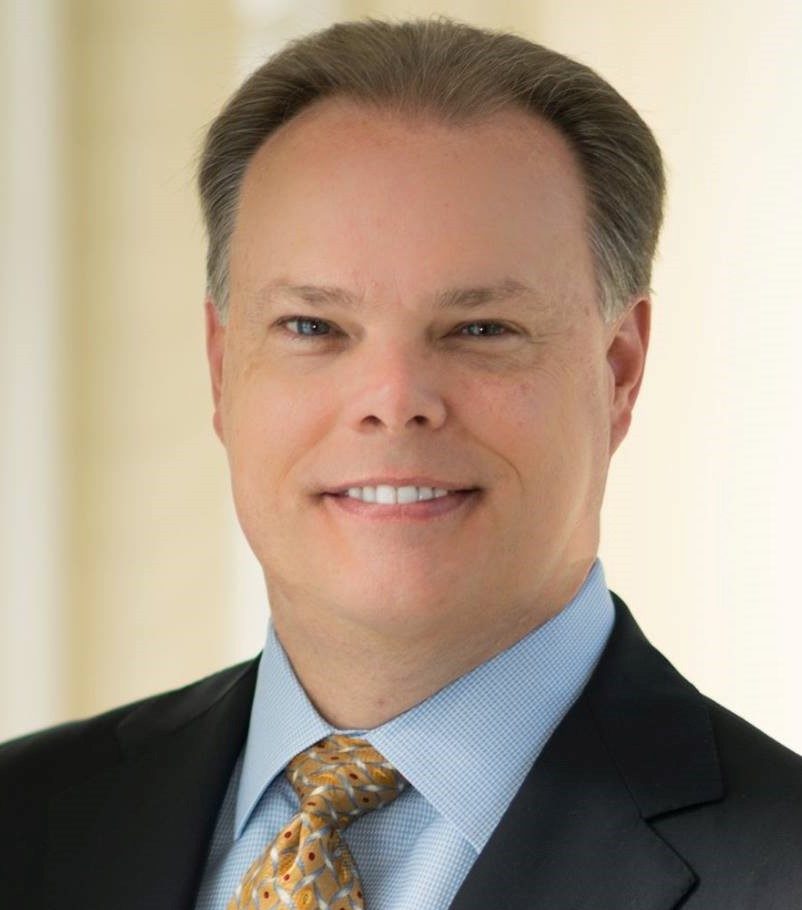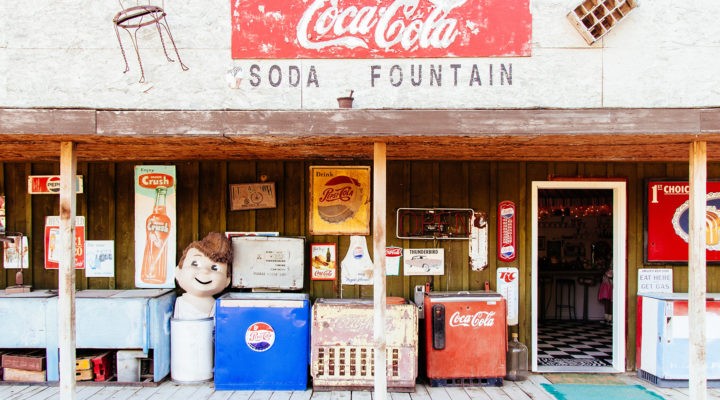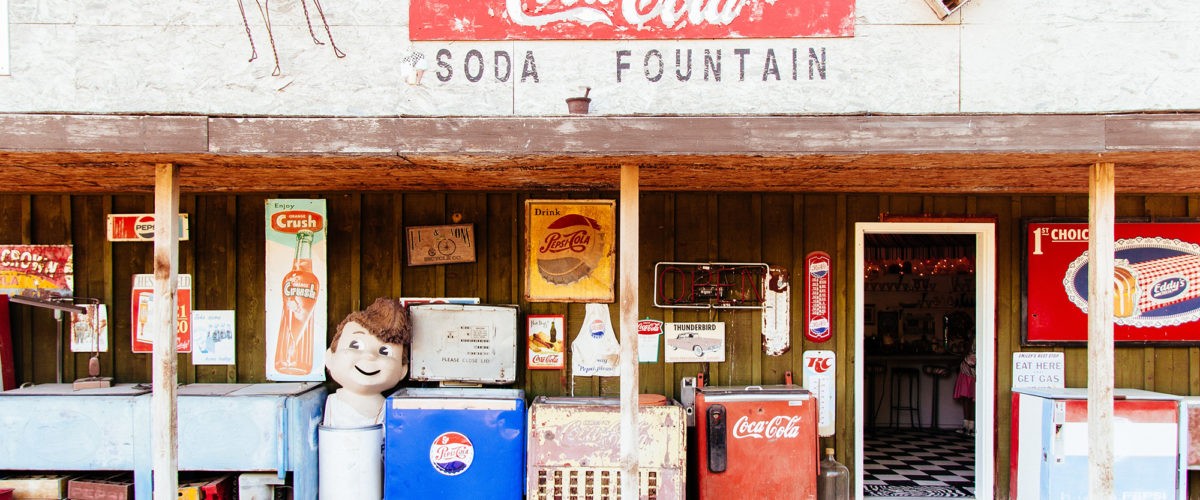Pastors often find themselves serving well beyond their congregations. Some are cynical about this. For this reason or that, they think serving the community at large is beneath them. But most of us find it meaningful when people who aren’t our church members call on us.
Goodness knows, if we don’t allow ourselves to get bored, then our own workplaces give us plenty to do. If we are engaging our ministries in proactive ways, in touch with God’s calling, then there should be no shortage of work to be done.
Still, we’ll also make friends in our larger setting if we are genuinely and actively engaged where we serve. One can become a sort of chaplain to the community, eventually accumulating safe and valued friendships outside the church we may work for.

Charles Qualls
Being valued, called-upon and wanted by those outside your congregation is satisfying for most ministers like few other things. Not that these unexpected cries for help aren’t sometimes a bit of an intrusion on what was planned. Still, they can bring some of the most meaningful times we’ll ever live.
Life can touch any of us in unexpectedly good ways. If we pay attention, life on balance just may give us far more than we might wish for. God’s goodness can come to us at any juncture.
Obviously, the reverse also can be true. Life can challenge and pile up on us in cruel ways. We all get a turn eventually. When we do, a healthy reaction is to sooner or later reach out for the support of trusted others.
I remember serving a church in a larger city, years ago, and arriving at a gala event. I was all dressed up and headed into a convention center to represent my congregation. In the parking deck, a man I was in a civic club with stopped me with news of a bad diagnosis. I listened to him, expressed my sympathy and offered my presence if he had need.
In the hallway moments later, another acquaintance from the community stopped me. She wanted to let me know she had just lost her job. She was distraught and a little shocked. I absorbed her story, felt her pain and pledged my support. Just as I had almost reached my assigned place at the event, a third community friend pulled me aside. “I think my wife is going to leave me,” he confided. “Can you help me?”
All of us have known others, and some of us have been the one, who carried an unfair load. We’ve watched a person or a family for whom illness joined misfortune, and downturn followed disappointment. People around them, of course, react in different ways.
Some friends instinctively and lovingly move toward the suffering. They empathize and listen.
Their presence is gift enough, although a word of wisdom and perspective here or there sure helps. Others will tire of hearing about one more unfortunate circumstance. They’ll step away to put distance between themselves and the friend or family member who hurts.
My trip back home early one evening took me by Bubba-Doo’s. I had traveled the interstate over to a large hospital in one of the cities our people sometimes use. When a specialist is needed, they’ll travel the extra distance to receive the best care. Now, finally nearing home, we needed a few grocery items.
“A pastor is never just a pastor once they step outside their own front door.”
A pastor is never just a pastor once they step outside their own front door. We are always on duty and always on display. We are held accountable, and our time rarely gets to just be our time.
A friend of mine, actually a hall of fame football coach, once observed this: “You know, your job and mine share something in common. If I swing by a store to pick something up, I’m still the head coach at our school. I don’t get to turn that off. When you run out for a gallon of milk, you’re still the pastor. Everyone who knows you wants to be acknowledged. You may just be a guy who’s supposed to grab some milk. But if they have something they want to tell you, you’re the pastor even on Saturday morning at the store.”
As I walked in the front door at Bubba-Doo’s, the effusive server Marleen practically sang her greeting from the nearby restaurant area. “Hey there, friend!!” she said in her melodic voice. I got a hug right there on the spot. Her smile practically picked me up and swept me in.
Soon, Stephanie also lit up as she saw me. “Hey there, Dr!” That’s what she calls me. I can’t get her to use my first name. She says she respects what I do, and that she can’t call me by my name. Her hospitality is a winner every time. However, Shelley also was on duty. Her facial expression alerted me that something was up.
“Have you seen Becky yet?” she asked.
“No, I just walked in the door. You all are the first people I’m seeing. What’s up?”
Becky is a busy woman. She juggles the demands of a wonderful family with a high-charged business career. She has risen steadily in a company that just happened to catch on and grow into something no one quite saw coming.
A couple of decades before, Becky had finished college with honors. Newly minted in her education, now she needed a proper job. What was then a small company hired her for an administrative position they had available. Flash forward to now, Becky is a manager within that same company with several direct reports and a few departments under her.
She lives in our community and drives a short distance over to their large office building. This capable woman is not a member of my church, although you never can have too many talented people like her. She would make a great addition.
“Becky just came in from work and asked me if I had seen you,” Shelley said. “She looked like something bad was going on.”
“Bubba-Doo’s is so many things to so many people.”
“Well, I’ll keep an eye out for her. Thanks for the heads-up.”
As so often happens, I had a list of things my wife and I had agreed I would pick up. Bubba-Doo’s is so many things to so many people. On days like this, it’s the convenient place that keeps us from having to make a run to a larger store somewhere else.
I saw Becky just up ahead, maybe two aisles over. Our paths were converging, and instinctively I knew I was not going to just be a guy with a grocery list this evening. Now, I was about to slip into my community chaplain role.
“Pastor,” I heard Becky call. Her face was pleasant, but her smile was borne of some effort. One look and I could tell all was not well. I returned her greeting. She replied by saying, “Man, did I ever need to see you about right now! You have a minute?”
We settled into a couple of seats in the restaurant. She offered to buy me something to drink. Stephanie got us all set while we caught up about life and work. I naturally assumed the source of her pain would either be something at home or at her office. But as we waded in, both of those seemed to be bright spots.
“I’m so hurt, and I hope you don’t mind me sort of ambushing you like this,” Becky began.
“Oh, I’m sorry to hear that. Tell me what I need to know.” That safe, pastoral and open-ended question would be our starting place. A figurative reset button that would take me away from all my assumptions and invite her to tell her story.
“I’ve got this friend. Well, actually I’m trying to decide if she’s still my friend now. Anyway, I think she’s gone too far this time. I think it finally broke our relationship.”
You’d need to know that Becky is as mature and self-actualized a person as you would want to know. She is mentally strong and emotionally intelligent. But smart, capable people get hurt, too. This was her moment.
“What unfolded was a tale of broken trust.”
“Tell me more,” I responded.
What unfolded was a tale of broken trust. Becky had what she thought was a good friendship that had developed through being active within the community. Mutual friends had introduced them as they shared volunteerism in at least a couple of organizations over the years. Now, they had partnered on tasks and slowly got to know each other.
Becky looks back now and realizes that the friendship never fully reached the potential it initially held years ago.
“I realize now that I never really got ‘in.’ I’m not sure who all really is in with her, but it’s a short list. The rest of us are ‘buddies’ at best. She’s magnetic. She compels people like they’re her best friends. We are nurtured and drawn close, but I guess never really let in. I heard a saying the other day: ‘The hardest pill to swallow is realizing I meant nothing to people who meant a lot to me.’ I’d say that captures it.”
I asked her, “So, tell me what this feels like to you.”
“I feel sad. I feel mad. I feel disappointed and a little betrayed.”
“OK,” I replied. “That’s a pretty strong list to work with. It’s helpful that you are clear about what you’re feeling. When did all this come about?”
“Becky surprised me with what she told me next.”
Becky surprised me with what she told me next. “We used to get together socially occasionally. We talked about life and family. I confided in her stuff that I don’t tell a whole lot of people. Thinking back, though, she never really reciprocated deeply from her own story.”
She added: “She would ask me about my own life. But she always stopped short of telling me much of what was going on in her inner life.”
We chatted for a while. Becky went on a journey, unfolding this circumstance and that story. She talked of a relationship that went up one side of a mountain, peaked and now felt like it had been coming back down the other side for a while.
Eventually I asked her, “You said you felt sad, mad, disappointed and a little betrayed a while ago. What do you think led you there? Especially the ‘betrayed’ part?”
“Wow. You’re a good listener,” Becky said. “Those are exactly the words I used. But here’s the thing. It might be most accurate to say that I feel like she broke the trust between us.”
Her story substantiated why she might feel that way. The rest of the details are less important than the result. Admittedly listening only to her side, I could understand why this was the conclusion she had reached. When someone we’ve invested in and trusted makes us rethink and regret giving them that access, the hurt can run deep.
Any of us might pull for these two to mend the misunderstandings or misdeeds and rediscover their friendship of old. Pastors know, however, that forgiveness doesn’t always have a Disney or Hallmark ending. Forgiveness does not obligate us to act as though the slight never occurred. Nor does forgiveness always result in us resuming the relationship.
“Sometimes, forgiveness means we only let go of the acute hurt.”
Sometimes, forgiveness means we only let go of the acute hurt. Which can take quite some time if the disappointment runs deeply enough. Then, two people sometimes will need to move on neutrally in life without each other. Accepting an apology does not always bring with it a willingness to continue together.
Speaking of apologies, I asked Becky if she had received one from her friend who hurt her so.
“We talked about it. I stood up for myself and recounted the times when she misbehaved so badly,” she replied. “But no. She never apologized. I’m starting to doubt she ever will.”
“Becky,” I began. “Have you considered then that one day — certainly not now — you may have to accept the apology that never comes along?”
“It’s funny you say that,” Becky answered. “We have this friend in common. This friend has known her a lot longer than I have. This friend is in her inner circle. She confided in me that she knew what happened.”
“What did you get from that?” I asked.
“I got a couple of things. First, any second-guessing I was doing about my part in all this eased up. Our shared friend acknowledged that she knew about everything. So, I felt a little more sane and less doubtful of myself.”
“That’s good,” I said with a nod.
“Second, her friend also used the word ‘abuse.’ She said she knew what had happened, and that it was so bad that it was almost emotional abuse. Talk about a strong word.”
“That is a strong word,” I said. “How have you felt since the mutual friend talked with you about that?”
“I’ve actually felt a little better, I suppose. That conversation really just happened a couple of days ago. So, I’m still grieving. Pretty shaken up. But it changes things. You mentioned that I may someday need to accept an apology that never comes.”
“Yes, I did.”
“Well, it’s not the same. It’s not as good as if she did it herself. But in some way it felt like our friend was apologizing for her. That may be as good as I ever get. Maybe I’ll get there one day. Maybe I’ll eventually at least accept that apology by proxy. Right?”
“It became clear that a fairy-tale ending was unlikely.”
We chatted a while longer. It became clear that a fairy-tale ending was unlikely. My best hope was that the player I knew in this equation might someday heal.
I had texted my wife a while back and told her I would be a little delayed getting home. Stephanie and Marleen took care of our tea glasses through the whole thing.
Sometimes, we just need someone to listen actively to us. Sometimes, there is power in hearing our own story escaping our inner world by way of our voice for the first time. Even if this erstwhile therapy session does happen at Bubba-Doo’s and not in a more clinical setting.
Also sometimes, the best we may do is reach toward the concession of accepting an apology that likely won’t ever come. Life doesn’t always let us wrap up everything with a nice little bow.
My calling to walk beside hurting people, and some happy ones, is a privilege. That sacred calling does bring detours, even occasionally when I just want to be the regular guy who gets home at a reasonable hour.
Charles Qualls serves as pastor of Franklin Baptist Church in Franklin, Va. He is the author of eight books.
Articles in the Bubba-Doo’s series:
Sittin’ up with the dead at Bubba-Doo’s
Blooming where we’re planted at Bubba-Doo’s
A native daughter returns to Bubba-Doo’s
Concern for our nation at Bubba-Doo’s
A thoughtful question at Bubba-Doo’s
A Bubba-Doo’s regular loses a loved one
An internet celebrity visits Bubba-Doo’s
Bubba-Doo’s: A behind-the-scenes look inside the stories
A dose of clinical grief from Stumpy at Bubba-Doo’s
Intrigue visits a booth at Bubba-Doo’s
A Christmas lesson at Bubba-Doo’s
A chat with Mickey at Bubba-Doo’s about whether I preach the gospel or not


